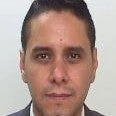 Women gathering around the manual water pump in the Municipality of Chibia, Province of Huila. Photo: Aleix Capdevila/World Bank
Women gathering around the manual water pump in the Municipality of Chibia, Province of Huila. Photo: Aleix Capdevila/World Bank
Over the last decades, we have seen growing evidence on how gender inequalities unfold in the water and sanitation (WASH) sector. The 2019 World Bank Group (WBG) report Women in Water Utilities: Breaking Barriers found that women experience lower levels of representation in water utilities, and face barriers in accessing equal employment throughout their career trajectory . Around the world, in households with water off premises, women and girls are the ones primarily responsible for collecting water. Likewise, worldwide, many women lack access to a private place to wash and change during menstruation. The Women in Water Utilities: Breaking Barriers is one of the analytical products supported by Global Water Security and Sanitation Partnership (GWSP).
Angola is no exception, and the WASH sector in the country remains heavily gendered, with women in rural areas usually being the most disadvantaged. As outlined in the 2021 report Diagnosing Angola’s WASH Sector : An Urgent Call to Action, among those households lacking a connection to piped water, around 74 percent of those responsible for fetching water in rural areas are women and girls, compared to 69 percent of women in urban locations . The burden of water collection significantly affects women’s human development capabilities, as it increases their opportunity costs of attending school and of working.
Similarly, 61 percent of all residents in Angola lack access to a handwashing facility, and this gap is more pronounced in rural locations; around 74 percent of households in rural locations lack access to a handwashing facility, compared to 54 percent in urban locations. Moreover, only around one-third of toilets in the country are separated by gender; this represents a significant barrier for girls, who rely on access to separate, and clean, toilets, as well as handwashing facilities, as a key practice for effective management of their menses.
Worldwide, women continue to be under-represented in water utilities, particularly in technical and executive positions. In Angola, according to data collected as part of the World Bank Utility Survey, conducted as part of the Women in Water Utilities: Breaking Barriers report, an estimated 16.7 percent of employees in utilities are women, lower than the 19.4 percent estimate for sub-Saharan Africa (SSA) and 18.7 percent globally1. Additional gendered issues in the region include: in rural Africa, women born during severe droughts suffer from increased levels of stunting, fewer years of education, and, ultimately, less accumulated wealth. Likewise, mothers who experience drought in their infancy are 29 percent more likely to have a child suffering from stunting and malnutrition.
The two current active government investments in WASH, supported by the World Bank , are aiming to bridge several of these gender divides. The Climate Resilience and Water Security – RECLIMA, which seeks to improve water supply services and strengthen water resources management for climate resilience, aims to provide support for provincial and municipal administrators to increase women’s representation in decision-making positions at community organization level and entities responsible for the operation and management of water supply services.
Likewise, the Second Water Sector Institutional Development Project (PDISA II) and the BITA Guarantee, seek to strengthen the institutional capacity of select water sector agencies and increase service coverage in target cities, including the capital city of Angola. It includes the preparation of participatory sanitation master plans in agencies responsible for service provision, with targeted engagement of women to ensure their voices are heard, and they participate in decision making processes. As of October 2022, in PDISA II project sites, there has been a significant increase in the percentage of network expansion contracts that carry consultations with women. Moreover, the expansion of network connections to over 50,000, including half female beneficiaries, has also likely translated into a significant reduction in the burden of water collection responsibilities facing women.
Moving forward, Angola should continue to expand household, school, and health level surveys on menstrual health and hygiene (MHH) , following the guidelines outlined by the World Health Organization – United Nations International Children's Emergency Fund (UNICEF) and the Joint Monitoring Programme. Moreover, additional focus should be placed on drawing from the World Bank’s Equal Aqua platform, as it offers a one-stop shop of data, case studies and guidelines for improving female representation in the sector, and making the water workplace more inclusive. Likewise, efforts should also be placed on increasing facilities for adequate MHH, promoting affirmative action policies to increase women’s representation in water utilities, and continuing to reduce the burden of water-collection responsibilities through further expansion of the country’s piped-water network.
Additional research, in the form of qualitative work and impact evaluations, needs to be conducted to capture evidence-based research on how to address gender norms around water-fetching responsibilities. A good reference point are the several measures on time-use and women’s agency being collected by the Measures for Advancing Gender Equity, headed by the World Bank’s Africa Gender Innovation Lab (GIL) and the Living Standards Measurement Study (LSMS) team.
The UN 2021 Women reports that, in Angola, only 30 percent of seats in parliament were held by women, 24.7 percent of women aged 15-49 years reported that they had been subject to physical and/or sexual violence in the previous 12 months. Risks of gender-based violence can also be exacerbated by lack of access to on-site facilities, as women often travel long distances, often to insecure environments, to fetch water, which, in turn, increases their risks of GBV.
The country’s current WBG WASH lending portfolio -with support from GWSP’s - is seeking to tackle several of the ways women in the sector remain disadvantaged, by increasing women’s representation in Angola’s utilities and lessening the burden of water-collection responsibilities at home through the expansion of piped water network. However, more remains to be done, especially in the menstrual health and hygiene space, to continue to tackle some of the deep-rooted gender inequalities facing the country. The GWSP is a multi-donor fund within the World Bank that produces cutting-edge research and analytics to create and deliver urgent, practical, and innovative solutions.
Lastly, given the many, cross-cutting, dimensions of gender inequality in the country, addressing gender imbalances in the country requires a broad, holistic, inter-disciplinary approach.





Join the Conversation